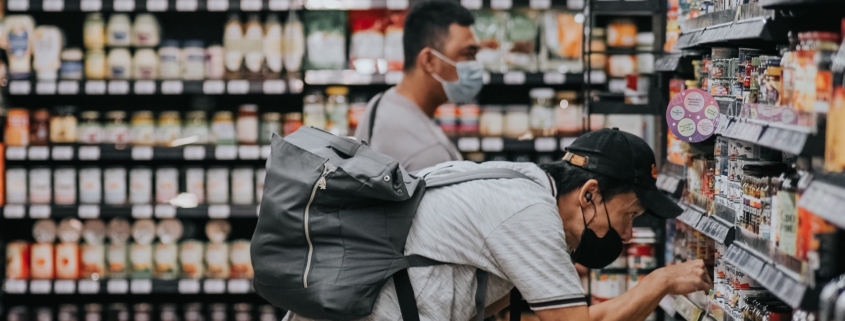Amazon’s Grocery Future
The latest news in brick-and-mortar retailing is that Amazon is “doubling down” on grocery. According to an interview in Financial Times, CEO Andy Jassy indicates that Amazon is planning to “go big” in grocery. Current formats such as Amazon Fresh and Amazon Go have not been the game-changers that Amazon and observers expected. The 2017 purchase of Whole Foods has not changed the grocery landscape as expected.
Mr. Jassy states that part of the problem with Amazon Fresh and Amazon Go is that many of the stores opened during the pandemic. But, some observers note that Amazon does not yet truly understand grocery. And, some say the focus on technological convenience such as smart shopping carts and ‘just-walkout’ intelligence has led Amazon astray. As Financial Times pointed out, no one says they are going to the grocery store because of the smart shopping carts.
Amazon indicates that grocery is still “in the early stages” of concept development. Although technology should play a role, it is not the driver for food shopping. Before Amazon ventures forth with new grocery ideas, the brand needs to recognize that technology is a feature that delivers benefits. Those benefits need to be articulated in relevant, differentiated ways. Saying that just-walk-out technology is convenient is generic. Blaming the pandemic may be a reason why the various Amazon grocery concepts faltered, but making technology the star attraction might also be a reason. Shopping for food is emotional and social and says things about the shopper.
Additionally, it is a mistake to assume that shoppers want people-less stores for grocery shopping. Peruse the perimeter of your local grocery and observe how many shoppers are conversing with the butcher or the person behind the fish counter. People have questions. People want to chat about that cut of meat or how many people that chicken will serve or which fish is boneless.
Having said this, Amazon is a creative retailer. And, there are many grocery concepts with which Amazon might excel, especially with its ability to track and measure. Here are a few that might be successful especially if underpinned by comforting technology:
365 Stores
Whole Foods 365 own brand items compete across multiple categories. It is a premier own brand. Ever since Amazon changed the name and packaging from Every Day Value to Whole Foods, the quality, variety and consistency of 365 has grown. 365 also provides Whole Foods’ shoppers with less expensive but just-as-good alternatives.
Prime Stores
This is an area where Amazon can compete with Costco. Membership-based Costco is successful due its bulk buying, its limited-time specials, its own brand Kirkland and its mix of food and non-food items. Amazon could easily excel with a Costco format. Plus, Amazon already has a large membership base through Prime.
Re-conceptualizing Amazon Go as 7-11 type Convenience Stores
This concept would require a different approach to real estate. Locations such as strip malls and gas stations/plazas might resuscitate Amazon Go. Amazon Go is high-level convenience, not made for daily grocery shopping. Sure, the format can work in high traffic office space areas. But, there are fewer of these areas as part-time WFH has changed the landscape.
Leveraging Local
Amazon has plenty of food concepts in its backyard of Seattle. There are many greenmarkets and local food box subscriptions. Amazon could use its technology to locate and aggregate local produce, beverages and crafts. That same technology could be the fire power for local fruit and vegetable subscription boxes. These boxes could be picked up at Amazon drop-box locations. Local is not something that happens in just coastal cities. There is a lot of farmland across the country that could participate in a local-focused entity.
Co-op Stores
Again, Amazon has a great local vendor example of a co-op concept in PCC Community Markets. The PCC website states the following:
Our mission is to ensure that good food nourishes the communities we serve while cultivating vibrant, local, organic food systems. In everything, we strive to inspire and advance the health and well-being of people, their communities and our planet.
We embrace stewardship, act with integrity and take action because we care. We’re dedicated to preserving local farmland and we foster high standards by partnering with Northwest producers, farmers, ranchers and makers. Our passion is for great food and cooking, from our locally sourced produce to our in-store kitchens where original recipes are prepared fresh daily using seasonal ingredients. Because when you love a community, you feed it well.
This is something that Amazon could pull off as well considering its focus on customers.
Technology is, of course, a disrupter. But, Amazon needs to determine just how much disruption grocery shoppers will accept. More interesting and relevantly, differentiated store concepts that use technology as a feature rather than a driver may be Amazon’s best bet. Also, technology is not Amazon’s only strength. As discussed above, there are a lot ways in which Amazon could win in grocery that go beyond smart shopping carts.



